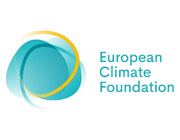
Peter Sweatman, Author
New key evidence and insights from the European banking sector can provide recommendations for the December 2023 recast EPBD.
Published in December 2023
Drafted over the course of 2023, this report builds on years of work furthering energy efficiency -including Mortgage Portfolio Standards (MPS) and the EU Renovation Loan (ERL)-, with a focus on the role of retail financial institutions in building renovation investment in Europe. This report covers:
Key recommendations for the last negotiations in the recast EPBD include:
In 2023, the EU adopted an updated Energy Efficiency Directive that contains an economy-wide final energy consumption target which represents a 21% reduction by 2030 on 2021’s actual energy use. Meeting this target will be historic and requires actions that are over and above what has gone before. Success will deliver significant economic and security benefits to countries, yet it cannot be met unless building renovation rates increase significantly. This is why 2023 also needs to see an ambitious agreement in the recast of the EU Buildings Directive (EPBD) that combines new standards with the financial resources to deliver the EU Renovation Wave.
An ambitious recast Buildings Directive is a once in a decade opportunity for Europe.
Sebastien Godinot, Head of Sustainable finance at WWF European Policy Office commented: "Climate Strategy's latest report, 'Engaging Retail Lenders in Home Renovation,' underscores the need for more efforts from European banks on green lending. Highlighting a golden opportunity within the Energy Performance of Buildings Directive, it urges financial institutions to be proactive champions of home renovations. This report is a catalyst for change, emphasising the need for immediate collective action to achieve resilient, energy-efficient homes that are crucial to achieving the EU climate and energy targets."
Milestones include:
